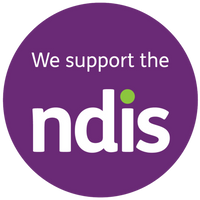How Playdough Can Help Language Development in Kids
Speech pathologists have a thing for playdough and dough-based play. When working with young children, it can be used in a bunch of different ways to help us achieve a variety of goals. Language development is one of the key areas we address through play, as it is a gateway into the development of a thinking child!
Language is a major part of our communication. It is our ability to express ideas in signs and words, and the understanding of information in our world. Pragmatic language is our ability to understand and follow social cues and use body language when interacting with others. Under this umbrella comes turn taking, sharing, conflict resolution, perspective taking and negotiating skills. The communication pyramid below outlines each of these stages in more detail:

Why is playdough a therapy material of choice when targeting language?
It’s fun! Children learn best when they’re enjoying the activity
- It helps regulate a child’s sensory system, helping them stay engaged with the activity task for longer periods of time
- It is multi-use and adaptable for each child’s skill set

Tips to use playdough to encourage language skills
-
Narrate what you are doing — e.g. “I’m rolling a long snake and squashing the ball!”
-
Add on a step from what they are doing - e.g. If they are rolling a ball, you could do the same, then cut yours in half or squash it down
-
Use visuals to give them ideas about what they can create — Playdough Mats are great for this. Grab out Free playdough mat printables here
-
Taking turns with different playdough stamps, tools and figurines
-
Imitating actions - e.g. playing copy cat!
-
With pre-schoolers and early age kids, negotiate what colour and tools can be used between siblings in advance
-
Facilitate turn taking with “favourite” stamp/tool/dough colour using a timer
-
Work on predicting skills by “guessing” what you’re about to make and provide clues
Independent Play is possible with Playdough
Here’s another thing — dough-based play can also be independent! Solo play is important for the development of creativity, curiosity, problem solving and self confidence. For parents, this also provides an opportunity for respite and balance. While narrating and spending quality 1:1 moments with your child is important, it’s not something you have to do all day, everyday! Letting them explore it independently can be perfectly educational too.
For more information on language development, tips and ideas to support your child’s communication, follow Mariah on Instagram @sound.adventures or visit www.soundadventures.com.au
About the Author: Mariah Apostolopoulos Speech Pathologist
Mariah is a certified speech pathologist passionate about early child development. She values the parent-therapist relationship and understands the importance of parent implemented support at home. She is passionate about working with families through family-centred care approaches, promoting language, speech and early literacy skills in the most fun and enjoyable way.
She has experience in assessment and intervention of speech and language disorders in the early years, having worked with children diagnosed with Autism Spectrum Disorder, Intellectual Disability and various other language, literacy and speech disorders.
Mariah is based in Melbourne, Asutralia and offers 1:1 parent consultations, group sessions, presentations and a parent guidebook program for Emerging Communicators. This program is rich with language strategies, activities and play ideas to navigate communication development in the early years.
Mariah’s a mum to twin toddlers, enjoys park walks and rubbish truck adventures with her kids.


